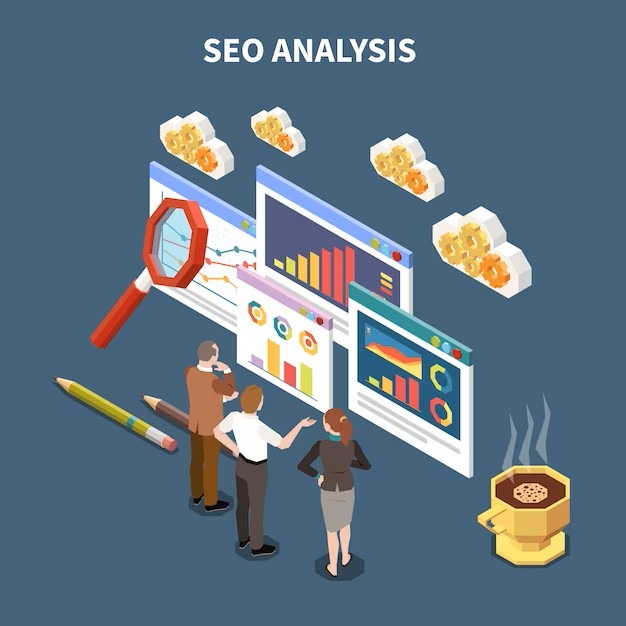
18, Mar 2024
Boost Your Website’s Rank with Expert SEO for WordPress Tips
Introduction:

Search Engine Optimization (SEO) is the process of optimizing a website to determine its ranking in search engine results pages (SERPs). With millions of websites online, it’s important to stand out from the competition and reach potential customers. This is where SEO comes into play.
SEO for WordPress uses a variety of methods and techniques to improve website quality, content, design and structure. Its main goal is to make your website search engine friendly so that it can be easily crawled and indexed by search engines like Google, Bing and Yahoo.
To Understand Basics of SEO for WordPress
There are many things to understand basics of SEO for WordPress like.
• A strong understanding of SEO is essential when it comes to running a successful website. And if your website is built on the popular WordPress platform, you can use a few techniques to boost your site’s ranking and drive more traffic.
• An important aspect of SEO for WordPress website is content. Creating high-quality, relevant and quality content not only attracts visitors but also increases your chances of moving up in search engine results. This includes using strategic keywords throughout your content that match what people are searching for when searching for websites similar to yours.
• Another important aspect of SEO for WordPress is proper structure and organization. The way you organize your web pages can affect its SEO performance. Using categories and tags in blog posts allows search engines to navigate and index better which leads to higher levels.
• In addition to these basic SEO features, there are also plugins specifically designed for WordPress sites that can help boost their overall performance. Examples include Yoast SEO or the All-in-One SEO Pack which offers features such as XML sitemaps, meta description optimization, keyword analysis tools, easy 301 redirects management, and more.
• In addition to plugins, your website can also benefit from its full ranking potential by using internal linking. This not only helps users navigate your site faster but also helps Google crawl the different pages on your site more efficiently.
• Last – but certainly not least – website speed is also an important factor in SEO for WordPress. The faster your site loads, the higher it’s likely to rank in Google. Image optimization and archiving plugins can help improve your website’s load time, resulting in a much better overall user experience.
Keyword research and SEO implementation for WordPress
The first step in keyword research in SEO for WordPress is finding the right keywords for your website. This includes considering short-tail keywords and long-tail keywords that are relevant to your industry, products or services, and location. There are many tools like Google Keyword Planner, SEMrush, Moz Keyword Explorer and many others that can help you create a list of possible keywords based on search volume and competitiveness.
Once you have a list of focus keywords, the next step is to check their relevance. Consider the intent behind each keyword – are users searching for information or willing to make a purchase? This will help you identify keywords that align with your website’s goals.
Once you have completed a list of relevant and functional keywords, it’s time to use them in your website content. The most effective way to do this is through on-page optimization techniques such as keyword inclusion throughout the page title, URL, title, meta description, and content itself
On-page Approach to SEO for WordPress
A key element of on-page modification is metatags modification, which includes the title tag, meta description, and header tags (H1-H6). These tags give information about your website to search engines and affect its ranking. A strong title tag with relevant keywords can entice more users to click through to your website from the SERPs.
Image quality is often overlooked but can have a profound effect on the speed at which a web page is loaded and the overall user experience. Images can be compressed without loss of quality and can be easily indexed by search engines using descriptive filenames with appropriate keywords and alt text
In addition to these technical features, on-page optimization also focuses on improving the user experience by making navigation easier for visitors and search engine crawlers to build links within your website, it helps distribute links evenly across web pages, and more on your site for visitors -providing a clear way to find relevant information
Pay close attention to page load speed as it affects user experience and SEO rankings. Optimize CSS files, reduce HTTP requests, enable browser caching, remove unnecessary plugins and scripts – these are techniques you can use to increase the loading speed of your website.
Strategic Off-page SEO for WordPress
The foremost off-page strategy is to construct one-way links, which might be links to other web sites that direct customers on your website online. When a famous website refers lower back for your content, it tells search engines like google and yahoo that your website online includes precious facts worth sharing. But it’s vital to consciousness on getting brilliant inbound links in place of simply huge volumes.
Another important off-page strategy is social media marketing. As an increasing number of people rely on social media platforms for information and recommendations, having a strong presence across these channels can greatly benefit your SEO efforts.
Additionally, nearby SEO shouldn’t be omitted with regards to off-page optimization. Listing your business on a Google Business Profile (GBP) and creating local listings in directories like Yelp or TripAdvisor can greatly enhance your local search engine marketing ranking.
The role of plugins in optimizing your WordPress website for SEO
• Firstly, plugins offer numerous equipment and features that make it easier to use SEO for WordPress. These encompass things like meta tags, key-word optimization, XML sitemaps, and alt tag for image.
• In addition, a few plugins also provide advanced analytics and reporting equipment that provide insights into your website’s SEO overall performance. You can track critical metrics like organic traffic, inbound links, and web page scores to monitor the effectiveness of your SEO strategies.
• One of the most essential elements of SEO for WordPress is ensuring that your website has a fast-loading time. Fortunately, there are many caching plugins to be had for WordPress that assist optimize the loading speed of your web site through collecting often used data on servers near the person.
• Many plugins now offer responsive design alternatives that robotically customize your website layout according to the device you are the usage of. Having a practical design now not only improves the user enjoy however additionally allows enhance your SEO ranking as a Google Favors mobile-friendly web site.
When it comes to SEO for WordPress web sites, plugins provide crucial features and equipment that assist enhance search engine rankings and drive extra site visitors. By the usage of the proper mixture of plugins and implementing powerful SEO strategies, you can release your website’s potential for better exposure and success on the aggressive net.
Conclusion:
SEO for WordPress is one of the maximum essential elements in maximizing the ability of your website in today’s digital panorama. By implementing powerful strategies to your WordPress website, you may increase visibility, entice organic site visitors, and sell logo trust. Adding these professional SEO strategies to your WordPress internet site may additionally require effort and time but the blessings are nicely really worth it. So, wait not, begin using those professional SEO for WordPress strategies and release the full potential of your internet site today!
- 0
- By info






